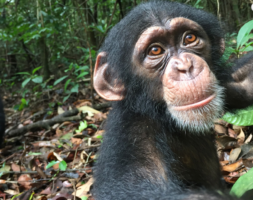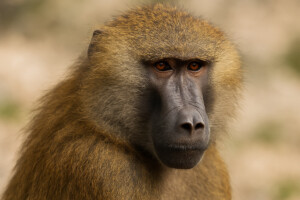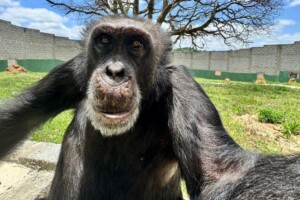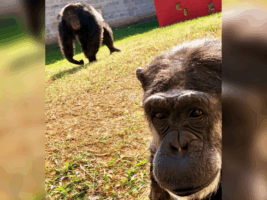Chimpanzee Cecilia Finds Sanctuary: An Interview with GAP Brazil
By Lauren Choplin (NhRP blog)
In November of 2016, an Argentine judge issued a ruling that has changed the life of a single chimpanzee—and could help do the same for other autonomous nonhuman animals. Thanks to litigation brought by an Argentine organization (AFADA) and modeled on the NhRP’s habeas petitions in the US, Cecilia—formerly held alone in captivity at the Mendoza Zoo—is now considered a “non-human legal person” with “inherent rights.” On April 5th, pursuant to this ruling, she arrived at the Great Ape Project Brazil’s Sanctuário de Sorocaba.
This past week, we checked in with our friends at GAP Brazil, who kindly took some time out of their tireless work to talk to us about how everything’s been going and the importance of Cecilia having found sanctuary by being recognized as a legal person with rights.
How’s Cecilia doing? What’s the process for getting her used to her new environment? Generally speaking, what sort of factors do you have to contend with in the move from captivity to sanctuary?
GAP Brazil: Fortunately Cecilia is doing very well since she arrived. But the sanctuary team has to be very attentive and patient because she has lived all her life in a concrete cage, very few meters away from the public/visitors and the reality she experienced was very limited. We will have to teach her everything, for instance, to eat bananas—they used to give her cold-area fruits from Mendoza, such as grapes and citrus fruits. She is also afraid of the noise of motors of tractors and of being taken back to her old enclosure. She is enjoying stepping on the grass, the larger area to walk and run in, and the companionship of her chimpanzee neighbors. Now, in the first days, we want her to know and trust the humans of the sanctuary—the vets and the handlers—and are also enriching her food with more protein items.
Why is it important to GAP Brazil to refer to the chimpanzees as ‘guests’?
GAP Brazil: Because they are (nonhuman) persons and should be treated with the respect they deserve.
Why does GAP Brazil support recognition of nonhuman rights? Why do you feel inspired by what the NhRP is doing?
GAP Brazil: Because as long as we treat nonhuman animals as merely things in terms of law, little will be possible to be done to change their status and the many exploitative situations to which humans subject them. That’s why the Cecilia case is so important: the only way to make her free of the suffering caused by captivity in the zoo was using the writ of habeas corpus. And we believe that after coming across her story a lot of people stopped to think about if it’s right or worth it to keep a chimpanzee in a zoo, or in a lab, etc. The NhRP and lots of other aware lawyers around the world who are working on this goal should celebrate each victory achieved, together with other professionals who collaborate to spread the ideas and inform the general public [about the importance of nonhuman rights].
How would you characterize the role that the sanctuary plays in the Sorocaba community and Brazil at large?
GAP Brazil: The sanctuary is well known in Brazil and in the world and it is a reference to the rescue and good care of great apes, especially chimpanzees. It is affiliated with GAP PROJECT INTERNATIONAL and was founded by Dr. Pedro Ynterian in 1999/2000. It is the largest sanctuary in Latin America dedicated to the defense of primates and all animals. It is a private and voluntary initiative and it is not beholden to governments or donors.
Dr. Pedro was GAP’s international president from 2008 to 2016 and now he is the General Secretary. GAP and the sanctuary have a deep commitment to the defense of great apes’ rights. During the last decade, teamwork made it possible to rescue all chimpanzees from circuses in Brazil and now the aim is to rescue chimpanzees from zoos.
Cecilia’s transfer is not only one more rescue. It also officially marks the recognition by Human Justice that a nonhuman person is also a subject of rights, not a thing.
Is there anything you’d like to say to NhRP supporters in the US and around the world who are moved and inspired by Cecilia’s journey to sanctuary?
GAP Brazil: Keep working and never give up!
Source: https://www.nonhumanrights.org/blog/chimpanzee-cecilia/

 Español
Español
 Português
Português








